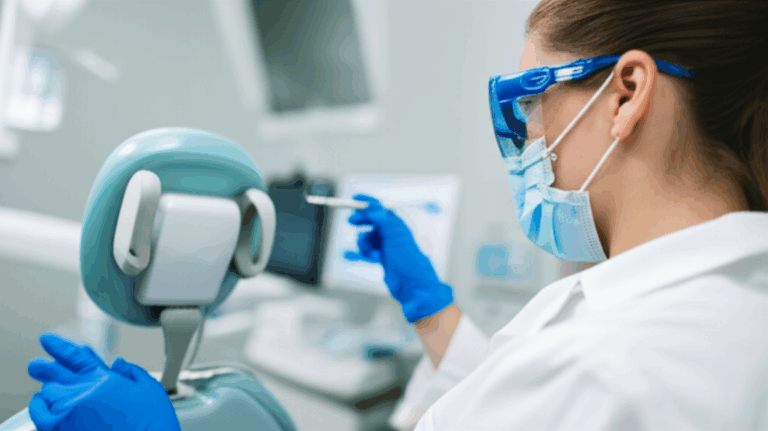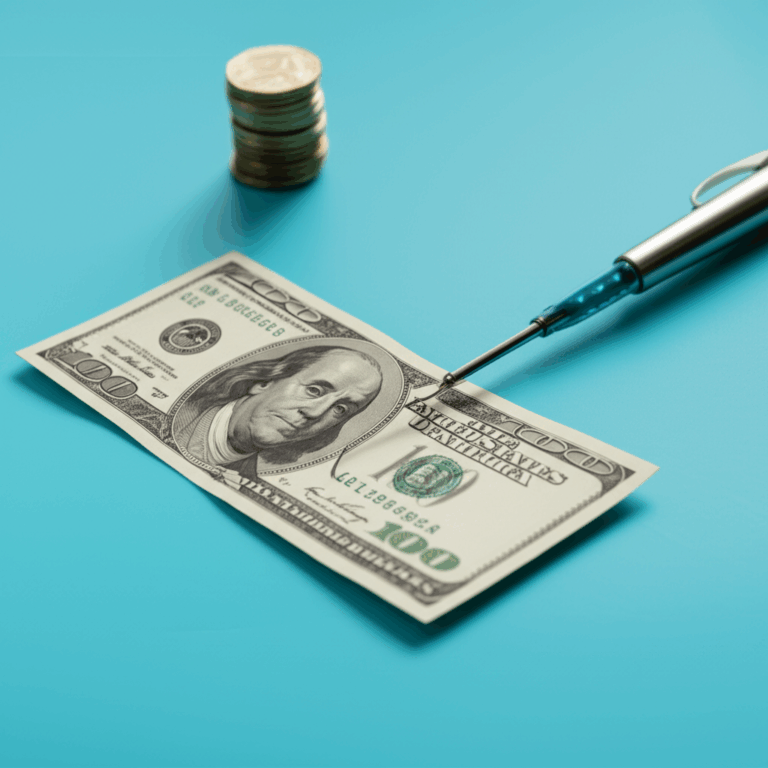
Does Dental Assistant Experience Count as Clinical Hours for Dental & Medical School?
That question—“Does dental assisting count as clinical hours?”—probably came to mind after a few days of holding the suction and talking with nervous patients. If so, you’re definitely not alone. Lots of pre-health students (future dentists, doctors, PAs—just about anyone wanting a healthcare job) wonder if this kind of real hands-on work will actually count toward those important clinical hour requirements on their applications.
You’re probably handling school, work, and all the excitement of a busy dental office. It’s normal to want your hard work to mean more than just a paycheck. Maybe you’re asking, “Does handing tools to a dentist, taking X-rays, or helping a child after a filling really count for an admissions committee?” Good news—you’re in the right place. We’ll explain how your dental assistant (DA) job fits into clinical hours, why it matters, and what you can do to make your experience count.
In This Article
- What Counts as Clinical Hours? (And Why Admissions Committees Care)
- Dental Assisting as Clinical Experience: What Really Counts?
- How to Maximize Your Dental Assistant Experience for Applications
- Do Dental and Medical Schools See Clinical Hours Differently?
- Other Valuable Clinical Experiences for Pre-Health Students
- Frequently Asked Questions (FAQ)
- Your Key Takeaways: Moving Forward with Confidence
What Counts as Clinical Hours? (And Why Admissions Committees Care)
Let’s get some easy explanations out of the way first. When you hear “clinical hours,” you probably think of hands-on healthcare work that gives you a true look behind the scenes—being close enough to see and talk to real patients, and to understand what life in medicine or dentistry is really like.
But what do admissions committees want when they ask about clinical hours?
Direct Patient Care: The Gold Standard
Direct patient care means having real, meaningful moments with patients. This might be:
- Taking blood pressure or pulse
- Asking for patient histories
- Helping a healthcare provider right next to a patient
- Telling patients about what will happen
- Comforting scared patients
These hours show more than just “I was present.” They tell schools that you have kindness, communication skills, you get what pain or fear is, and you really care about helping people. Imagine it like taking a test drive before you decide to be a healthcare worker forever.
Admissions committees love direct patient care because it shows you know what it’s like in a healthcare setting, and that you can deal with both the good and bad stuff that comes with it.
Shadowing and Administrative Work: Useful, But Not the Same
So what about shadowing or working at the front desk?
- Shadowing is mostly watching. You learn about the daily flow, but you aren’t caring for patients. It’s good, but it usually doesn’t count as clinical experience.
- Administrative tasks—like answering the phone, billing, or managing files—help the office run, but if you’re not talking to or helping patients, these hours might not count for clinical requirements.
Why does this matter? Admissions boards want to know: Can you connect with people when they need it most? Are you comfortable working in a dentist office or a hospital? Have you ever looked at things from a patient’s side? Clinical experience answers those questions.
Tip: When you log your hours, always write what you did—not just where you worked.
Dental Assisting as Clinical Experience: What Really Counts?
Now let’s look at dental assisting from the eyes of admissions people. You probably want to know: Will your hours count, and what can you do to make sure they do?
When Dental Assisting Definitely Counts as Clinical Hours
If you’re doing these things, your hours will almost always count as good clinical experience for both dental and medical school:
- Helping at the Chairside: Handing tools to the dentist, suctioning, setting up supplies, and helping patients stay calm during work.
- Getting Patient Histories: Talking with patients and getting their medical info before they get care.
- Explaining Procedures and Aftercare: Helping patients know what’s about to happen, or what to do after a procedure, and calming their nerves.
- Taking X-Rays, Impressions, and Vitals (if you’re allowed): Doing hands-on technical work that involves the patient, not just watching.
- Teaching Patients: Giving tips about brushing, how to prevent problems, or how to take care of themselves after leaving.
- Cleaning and Setting Up with Patient Contact: Making sure things are clean and ready for patients you’ll work with.
- Watching and Joining Treatments: Even watching the dentist with patients is helpful if you’re part of the help or calming someone down.
In short: If you’re helping, talking, touching, or comforting—the time counts. If you’re just watching, not so much.
When Dental Assisting Might Not Count (Or Only Counts a Little)
Some jobs in a dental office—while really important—don’t give you the patient exposure that schools want. For example:
- Only Doing Administrative Work: Answering the phone, making appointments, billing, or doing paperwork is good but isn’t direct patient care. Log these as “Administrative Hours.”
- Working in the Lab or Cleaning Only (No Patient Contact): If you never see a patient, this is more technical and less “clinical” in the way schools mean. Admissions might call this “Healthcare Experience” instead.
- Shadowing Only (Just Watching): If you mostly watch surgeries or treatments but don’t help, your hours count as shadowing. Useful to learn, but not direct patient care.
Pro Tip: If a task involves real interaction—physical or talking—with a patient, it’s probably clinical. Otherwise—log it in another spot, honestly.
Key Factors: How Will YOUR Experience Be Viewed?
Remember, it’s not about your job title. It’s about what you do each day.
Admissions Committees Will Look At:
- Your Real Jobs and Skills: Did you only clean tools, or did you comfort kids, give aftercare tips, help in surgeries, or assist with root canals?
- The Kind of Office: General dentistry, kids’ offices, public clinics, or special fields—all give different patient experiences.
- How Close You Were With Patients: The more real and hands-on, the better.
- How Well You Can Explain Your Work: Can you talk about what you learned in a personal essay or in an interview? Details matter.
It’s like making a meal—the things you do (your tasks) matter more than what your title says.
How to Maximize Your Dental Assistant Experience for Applications
You have the job. Now let’s make every hour (and every smile) count.
1. Look for More Direct Patient Care
Try to pick up more tasks that involve working right with patients:
- Offer to help during patient talks or with learning events.
- Assist in harder procedures when your dentist needs help.
- Ask if you can watch or help with different types of procedures or in other specialties at work.
The more active and patient-focused you are, the better your clinical hours.
2. Keep Good Records of Your Clinical Hours
Use a spreadsheet or notebook:
- Write down days, places, how many hours, and what you did each day.
- Note special cases, like emergencies or something unusual.
- Use action words (“Helped with 10 fillings,” “Explained after-surgery care to a worried parent”).
This helps you later when writing essays, answering questions, or sharing proof of your work.
3. Think About Your Experiences
Don’t just rack up hours mindlessly. Each week, write down something you learned.
- What did you learn about patient care this week?
- Did you run into any tricky situations?
- How did you see teamwork happen with the dentist, hygienist, and assistant?
These real stories will help a lot in your personal statement.
4. Get Strong Recommendation Letters
Ask the dentists or managers you work with for recommendations. The best letters talk about:
- Your work habits
- How you talk to people
- Your kindness and “people skills”
- Problems you helped solve in the office
- How much you care about patients
The more specific the examples, the stronger the letter.
5. Try to Add Different Experiences If You Can
Dental assisting is a great start, but it’s smart to branch out:
- Volunteer at clinics, hospitals, or health fairs.
- Shadow a different dental specialty or a doctor.
- Try becoming an EMT, CNA, or medical assistant for a bigger view.
Having different experiences makes you look ready for lots of situations.
Do Dental and Medical Schools See Clinical Hours Differently?
Last, here’s a big question—does dental assisting count the same for dental and medical school?
Dental Schools (D.D.S. / D.M.D. Programs)
Most dental schools love to see dental assistants apply. Why? You already know what real dental work is like! You’ve seen dental fear, teamwork, and learned skills that help you become a dentist.
- Most or all of your clinical hours can come from dental assisting.
- It shows you really want to go into dentistry and already know what to expect.
- If you can talk about real moments with patients (without giving away names!), tough choices, or “lightbulb” moments, that’s great for your application.
Medical Schools (M.D. / D.O. Programs)
Medical schools like clinical hours too. Dental assisting is more focused, but usually still counts:
- Patient care in any healthcare place—including dental offices—is useful.
- Medical schools do like a mix, so try to add hospital or doctor shadowing too.
- You might need to explain in your application why your DA experience matters. Talk about important things you learned: communication, kindness, teamwork, handling problems.
Admissions Committees Say: “It’s not just about hours or job name—it’s about what you learned and how you grew.”
Other Valuable Clinical Experiences for Pre-Health Students
Looking to add more variety? There’s a lot of ways to get useful clinical experience.
Common and Good Clinical Jobs
- Standard Shadowing: Watch doctors, nurses, or dentists in action. Understand how things work, even if you’re mostly observing.
- Volunteering in a Hospital or Clinic: Greet patients, help with simple patient care, and learn about busy medical spaces.
- Medical Assisting (MA): More direct work with patients, usually with a doctor watching.
- EMT or CNA Work: Deep patient care—help with emergencies, vital signs, or help people move.
- Research with Patient Focus: If it’s about results for people, it shows another side of healthcare.
- Community Service and Leadership: Run dental health workshops, take charge at events, or help out at health fairs.
Behind-the-Scenes Experience
Some clinical work is in the background, but it still matters:
- Lab Work: Especially if you work with patients for impressions, X-rays, or care planning.
- Keeping Things Clean and Safe: Learning to keep things clean in an office is super important in both medicine and dentistry.
- Administrative Work: Count only as clinical if you also help talk to or support patients with their care.
If you want to learn more about dental problems and what dental careers are really like, check out our page about dental problems.
Frequently Asked Questions (FAQ)
Q: How many clinical hours do I need?
- Every school is different. Dental schools often like 100–200+ hours of direct clinical experience. Medical schools are about the same—but always check your favorite school’s website to be sure.
Q: Can I count lab or cleaning work as clinical hours?
- Only if those jobs mean you have contact with patients, like getting a room ready or teaching about safety. Other times, these get counted separately.
Q: Is paid work OK, or only volunteering?
- Both count! Schools care about direct, hands-on work, whether it’s paid or not.
Q: Does shadowing count as clinical experience?
- Shadowing is counted separately from clinical hours. It’s good, but not “direct patient care.”
Q: How should I talk about my DA experience on my application?
- Be clear! Say what you did, using verbs (“helped with surgery,” “calmed kids,” “taught tooth-brushing”). Use numbers when you can (“saw 10–15 patients a day”). Make a picture of how you made a difference.
Your Key Takeaways: Moving Forward with Confidence
Here’s what matters most:
What’s Important?
- Direct Patient Care: Any DA tasks with real patient contact are super valuable.
- Clear Records: Be clear when you write about your experiences; admissions can’t guess what you did.
- Quality Over Quantity: 200 real, well-described hours are better than 600 you can’t remember.
- Mix It Up: Add different jobs if you can.
- Think About Your Work: Be ready to explain how every job makes you ready for healthcare—and be ready to talk about it!
- Find Good Mentors: Get close with supervisors or dentists so they can give you strong recommendations.
Have More Questions?
- Check the ADEA, AAMC, and your schools’ admissions pages.
- Ask your pre-health advisor—they have advice for your own situation.
- For more on the science behind dental crowns or what happens at a dental lab, visit our crown and bridge lab.
The Bottom Line: You’ve Got This
If you focus on patients—whether as a dental assistant or in any care job—you’re building real skills you’ll need for school and your career. Don’t forget how important your everyday moments are, whether it’s calming someone down or celebrating a perfect checkup.
So next time you help a nervous patient or handle a tough procedure, remember you’re not just doing your job—you’re building your future. Stay curious, think about your work, and find jobs that let your love for helping people stand out.
Let your path start with one patient. Every hour matters—especially for you.
Want to learn more about how dental lab work connects to care? Check out our china dental lab and see how new ideas help patients everywhere.
Remember: When you show care, kindness, and interest in what you do, you’ll stand out to admissions—no matter what your job title is. Good luck, and keep smiling!








